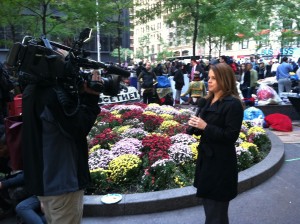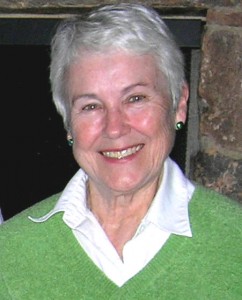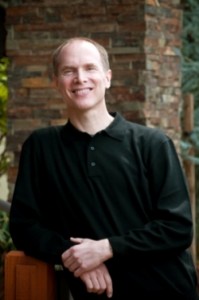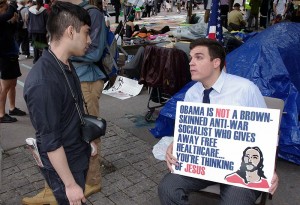Faith and Politics
I had seen people my age start successful businesses, become pop-stars and even play a key role in partisan political campaigns, but I had never seen them develop and sustain a social movement.
Sure there have been more focused shifts around issues like educational equity, LGBT rights or global poverty that my generation has had a hand in shaping, but nothing that quite had the look or the feel of what I imagined the anti-War or Civil Rights movements of the 1960s to have been. I assumed we -- my contemporaries ( I'm 27) -- simply didn't possess the interest or the will-power to accomplish something that big.
I was wrong.
The Christian world is broad and spacious, and within its circumference, like a large bowl holding a variety of colorful fish, swim a surprisingly diverse spectrum of believers. The secular media mistakenly seem to view "the evangelical movement" as a sort of monolithic structure akin to a well fortified garrison ranged to repel the attacks of "liberals" or "progressives" or "mainline churches." Or a right-wing political force often equated with Republicanism.
In our own time the "jobs" rhetoric from both the right and the left ignores the power grabs and power differentials that led to the hemorrhaging of American jobs in the first place. The simple truth is that multinational corporations could make more money for their shareholders by outsourcing jobs to third-world countries so that is what they did.
This was not a moral dilemma for CEOs; it was a "sound business decision." And the gospel according to free-market capitalism (the USA's true religion) preaches that what is good for American business is good for America.
For those about to rock-upy, Ben & Jerry salute you! Jesus-ween? Mobama sets her sights on jumping-jack record. And then they came for Grover... Scottish golfer wins his own weight in ham. (What? No haggis?) FoxNews unaired #OccupyWallStreet interview: Fair and (un)Balanced? Jobs memorialized in MacBook parts. Video game lets you try to balance your budget on a poverty income. Feist wows with new album "Metals." And some smarty-pants greetings for this Columbus Day.

Was Christopher Columbus on a Religious Crusade? One of the Many Things Pundits Don't Get About Occupy Wall Street. Getting Religion: 10 Best Films on Faith. Pastors Say Mormons Not Christians, But Defend Candidate Against Attacks. Arab Fall, Arab Fail: Coptic Christians slaughtered in Egypt. Phony Christian "Values Voters" Event Turns Into Free-Range Gay Bashing and Hypocrisy. And "Why I Went To Occupy Portland: It Was The Christian Thing To Do."
Tavis Smiley and Cornel West on poverty. The Value Voters Summit. U.S. Catholic Bishops remind Catholic voters about church teaching. Perry supporter calls Mormonism a "cult." Ron Paul wins Value Voter straw poll, with Cain in second place. Mitt Romney and religious bigotry. Ghana church says poverty "causes" homosexuality. Fox News attacks Lily the new Sesame Street poverty Muppet as "liberal bull." And Newt Gingrich says candidates are "not running for theologian-in-chief."
USA Today's religion reporter Cathy Lynn Grossman has a great post this morning looking at coverage of the spiritual import of the #OccupyWallStreet protests from the perspective of several religious commentators, including Catholic writer/professor Tom Beaudoin and Jewish writer/actor Jake Goodman.
As the evangelical community in Portland rediscovered the calling of showing, in addition to sharing their faith, everything has changed. And it's only the beginning of what God is doing in our city. We're in it for the long-haul.
Not only have many great needs been met, but churches are working together in relationship as never before. The impact of one church humbly serving is profound. But the impact of a united Church serving in concert, actually has the power to change how the world views the Gospel.
"'The fruit for which your soul longed has gone from you, and all your dainties and your splendor are lost to you, never to be found again!' The merchants of these wares, who gained wealth from her, will stand far off, in fear of her torment, weeping and mourning aloud ..."
-- Revelation 18:14-15
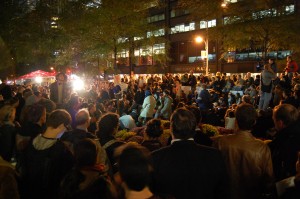 Throughout the day here at the #OccupyWallStreet mass demonstrations in New York's financial district, you can find small and often somber groups meeting.
Throughout the day here at the #OccupyWallStreet mass demonstrations in New York's financial district, you can find small and often somber groups meeting.
They have agendas, a facilitator, a time keeper, and someone to keep track of the "stack" -- the list of people waiting to make a point or ask a question.
And they also have a system of hand gestures -- a sort of gonzo sign-language adaptation of Roberts Rules of Order -- designed to keep the discussion and decision-making process both democratic and efficient.
When someone agrees with a point the speaker is making, the crowd raises two hands in agreement. When the crowd disagrees, hands quickly go up, making a downward pointing motion. To call a "point of process" crowd members shape their hands into a triangle to stop discussion. Speakers who wander off topic are quickly redirected and reminded of the point being discussed in the agenda.
These working groups bring their recommendations to the #OccupyWallStreet General Assembly, which takes place once a day. A vote is taken to determine consensus before a recommendation is passed along to the G.A.
Anyone participating in the General Assembly can block a proposal by forming an X with their arms. Participants make their case and then a revised proposal is put forth. The revised proposal can then be passed with a 90/10 consensus.
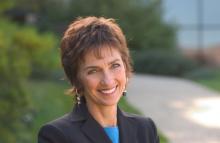
Increasingly, in meetings focused on a wide variety of human tragedies, I hear these words: "What are you doing here? I didn't think evangelicals cared about these things."
I understand those comments. I grew up in a form of Christianity in which "saving souls" was pretty much all that mattered. The God I discovered in that church was a harsh, demanding tyrant; I knew that if I wanted to earn God's love I would have to be very good, follow all the rules, and work very hard. As a devout adolescent I did that. As a young pastor's wife I did that.
Unfortunately, I worked a little too hard and eventually became utterly exhausted, seriously depressed, and physically sick. That plunged me into a total life crisis in which I felt compelled to give up the God of my childhood.
Fortunately, a wise friend said to me, "For a while, forget everything you've ever thought about Christianity; forget the Old Testament; forget Paul and the epistles-and just read Jesus."
So for months -- for years actually -- I just read Jesus. And slowly but surely, Jesus reshaped my understanding of what it meant to be a Christian.
Produced by Cathleen Falsani for Sojourners/God's Politics
Photos by Heather Wilson and Carrie Adams/Sojourners
Music by Jason Harrod (used with express permission from the artist)
Song: "For Your Time" from Jason Harrod's album Bright As You, 2006
All Rights Reserved
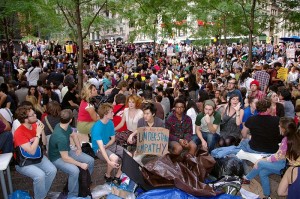
Jonathan, 19, who works at a fast food restaurant, said: "There isn't really room for religion here. We are trying to focus on the big problems we face that we all have in common. Religion gets people focused on too many specifics and divides."
His friend Chris chimed in, "How could anything that caused so many wars be any good?"
I asked a group that was serving food what they would think if more religious people joined.
"Awesome! Some Muslim guys came down and offered to do all the food one day," one young woman said.
"No way!" responded a middle-aged man who had been pointing other protestors to vegetarian sandwiches. "We just got a bunch of food donated by some church in North Carolina."
Many protesters here have had some bad experiences with religion, but it's clear that they are genuinely open to seeing religion done differently.
From the Catalyst Conference for evangelical Christian leaders in Atlanta, Sojourners' Director of Mobilizing, Lisa Sharon Harper, gives her answer to, "What is an Evangelical?"
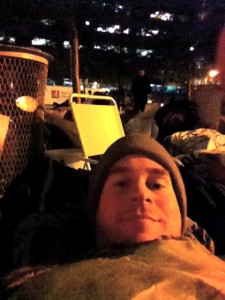 For whatever stereotype you might have in your mind about who the so-called Occupiers might be, there are some people who fit it, and whole lot more who don't.
For whatever stereotype you might have in your mind about who the so-called Occupiers might be, there are some people who fit it, and whole lot more who don't.
I traveled from Washington, D.C., to Wall Street late Wednesday because I believe it's often easier to find God on the streets than in a sanctuary.
We serve a God who shows up for those in need, and for those who stand with them.
Ms. Maathai's life and work are examples of the truth of the adage, "Nothing is more powerful than a made up mind." She made up her mind that planting trees is a way to make life better for rural women and for all of humankind. She wanted to plant one tree for every person in Kenya. An the Green Belt Movement has planted tens of millions of trees.
The Rev. Fred Shuttlesworth, a pioneer and giant of the civil rights movement, died Wednesday at 89.
